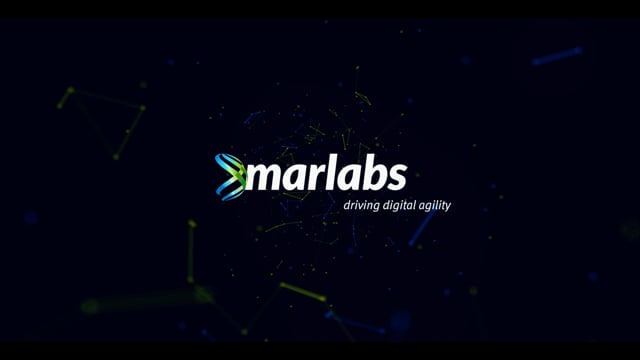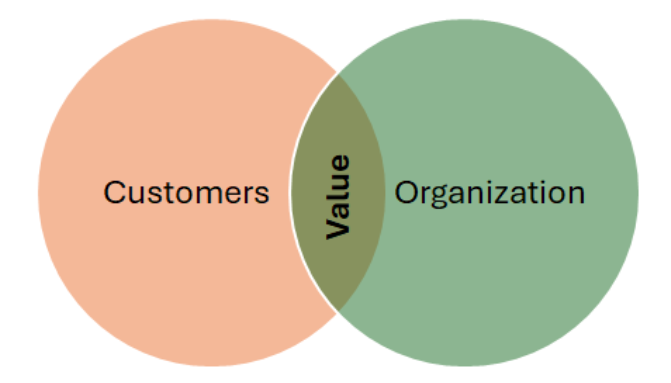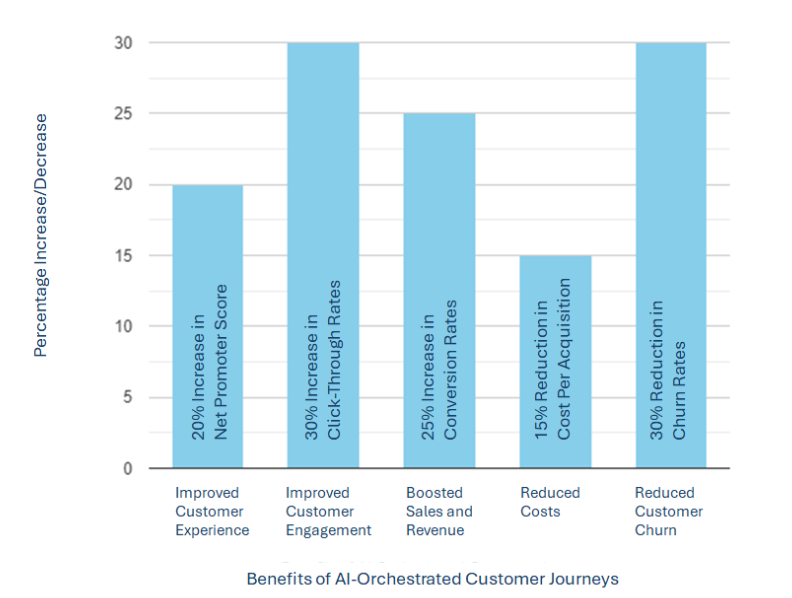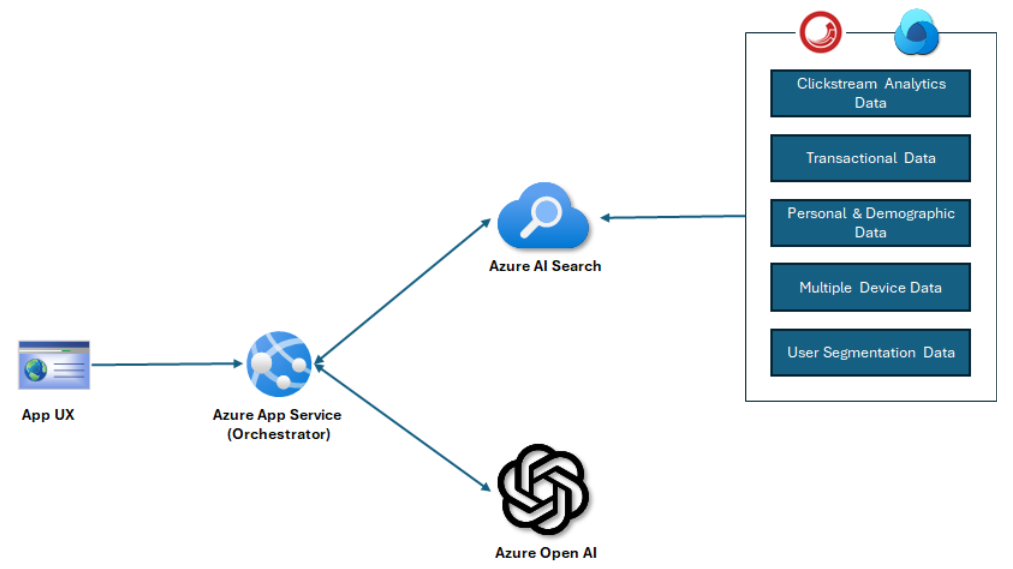It’s not just about offering a product or service, but about crafting a seamless journey that fosters loyalty and advocacy. Every interaction, from browsing a website to resolving a query, shapes a customer’s perception. Value creation lies at the intersection of customer interaction with an organization’s offerings.
Creating solutions by focusing on the interaction between customers and an organization’s offerings represents a perspective referred to as value-centered design. Here are some key factors that contribute to the complexity of this task:
- Multichannel customer engagement: Businesses are now interacting with customers across multiple channels, including websites, mobile apps, social media, email, and in-person interactions. Coordinating a consistent and personalized experience across these diverse touchpoints can be challenging.
- Data silos: Many businesses struggle with siloed data, where customer information is stored in different departments or systems. This fragmentation hinders the ability to create a unified view of the customer, making it difficult to provide a seamless experience based on a comprehensive understanding of customer behavior and preferences.
- High customer expectations: The rise of digital technologies and advanced online services has elevated customer expectations. Customers now expect personalized, relevant, and timely interactions with businesses. Meeting these heightened expectations requires a sophisticated approach to customer engagement.
- Dynamic customer behavior: Customer behavior is dynamic and influenced by various factors, including market trends, external events, and individual preferences. Adapting to these changes in real-time and delivering personalized experiences requires agility and responsive strategies.
- Innovation and competition: Businesses face intense competition, and innovation is a key differentiator. Staying ahead of the competition often involves adopting advanced technologies to enhance customer experiences. Failure to innovate in customer engagement may result in loss of market share.
- Technology integration challenges: Many organizations use a variety of technologies for customer engagement, from Customer Relationship Management (CRM) systems to marketing automation tools. Integrating these technologies seamlessly to create a cohesive customer journey is a common hurdle.
- Data privacy and security concerns: As businesses collect and leverage more customer data for personalization, concerns about data privacy and security have grown. Balancing the need for personalized experiences with respecting customer privacy is an ongoing challenge.
- Employee training and alignment: Ensuring that employees across different departments understand and contribute to the customer experience strategy is a significant challenge. Proper training and alignment are essential to delivering a unified and consistent customer journey.
Addressing these challenges requires a strategic and holistic approach, and this is where AI-orchestrated customer journeys come into play. By leveraging advanced AI technologies, businesses can automate and personalize customer interactions across channels, break down data silos, and adapt to the dynamic nature of customer behavior, ultimately delivering a seamless and satisfying customer experience.
What are AI-orchestrated customer journeys?
AI-orchestrated customer journeys are a series of personalized interactions that are triggered by customer behavior and data. These journeys can be used to guide customers through the sales funnel, nurture customer relationships, and provide support to customers in need.
AI-orchestrated customer journeys can be enhanced by leveraging the capabilities of Generative AI. Generative AI models such as GPT-4, GPT-35-Turbo, and Embeddings models can be used to:
- Recognize patterns and trends in customer behavior.
- Create personalized customer insights.
- Automate the creation of customer journeys.
- Deliver personalized content, recommendations, and offers.
Azure OpenAI Service provides access to these models through REST APIs, SDKs, and Azure OpenAI Studio. By utilizing these models, businesses can gain a better understanding of their customers and provide them with more relevant and personalized experiences. This can lead to increased customer satisfaction, loyalty, and ultimately, revenue. With Generative AI and Azure OpenAI Service, businesses can create a seamless and engaging experience for their customers at every touchpoint.
3 Ways to Leverage Generative AI to Understand and Predict Customer Needs
In today’s hyper-competitive landscape, where customer expectations are skyrocketing, businesses need to go beyond the ordinary to stand out. Generative AI can enhance customer insights and create AI-driven customer journeys in the following ways:
- Identifying customer patterns and trends: Generative AI can analyze customer data to identify patterns and trends, such as which products customers are most likely to buy together, which channels customers prefer to use, and which customer segments are most profitable. This information can then be leveraged to design more relevant and engaging customer journeys.
- Generating personalized customer insights: Generate personalized customer insights, such as a customer’s likelihood to churn, their next most likely purchase, and their preferred customer support channel. These insights can then be used to create customer journeys that are tailored to the specific needs of each customer.
- Automating the creation of customer journeys: Generative AI can automate the creation of customer journeys by generating personalized content, recommendations, and offers for each customer. This can save businesses time and resources, and it can help businesses to create more personalized and engaging customer experiences.
Benefits of using AI-orchestrated customer journeys:
There are a number of benefits to using AI-orchestrated customer journeys, including:
- Improved customer experience: By providing customers with seamless and personalized experiences across all touchpoints, the implementation of such customer journeys has resulted in a 20% increase in Net Promoter Score (NPS), indicating a measurable improvement in overall customer experience.
- Increased customer engagement: By delivering relevant and timely content, recommendations, and offers to customers, businesses experienced a 30% boost in Click-Through Rates (CTR), demonstrating increased engagement with tailored recommendations.
- Boosted sales and revenue: AI-orchestrated customer journeys can help businesses boost sales and revenue by guiding customers through the sales funnel and increasing conversion rates.
The adoption of such customer journeys led to a 25% increase in conversion rates, directly contributing to a substantial boost in sales and revenue. - Reduced costs: By automating the creation and delivery of personalized customer experiences, businesses achieved a 15% reduction in Cost per Acquisition (CPA), indicating significant improvement in operational efficiency and cost savings in customer acquisition.
- Reduced customer churn: The implementation of AI-orchestrated interventions resulted in a 30% reduction in churn rates, demonstrating the effectiveness of targeted strategies in retaining customers.
AI-orchestrated customer journeys can reduce customer churn in several ways, including:
-
- Identifying customers at risk of churn: AI can be used to identify customers who are at risk of churn by analyzing their behavior data. For example, AI can identify customers who have not made a purchase in a while, who have contacted customer support multiple times, or who have negative feedback on social media.
- Understanding the reasons for churn: Once AI has identified customers at risk of churn, it can be used to understand the reasons for churn. This can be done by analyzing customer data, such as survey responses, customer support tickets, and social media posts.
- Delivering targeted interventions: Once the reasons for churn are understood, AI can be used to deliver targeted interventions to prevent customers from churning. For example, AI can be used to send personalized messages to customers, offer them discounts or promotions, or provide them with additional support.
Unlocking AI-Powered Customer Journeys: A Guide to Combining Microsoft OpenAI Service, Sitecore Experience Platform, and Microsoft Customer Experience Platform
Azure OpenAI service allows you to train existing AI models like GPT-35-Turbo and GPT-4 on organizations’ own private data to personalize the responses and make them more relevant to specific needs and domains. For generating accurate insights, Retrieval Augmented Generation (RAG) can be used. RAG is an architecture that augments the capabilities of a Large Language Model (LLM) and supercharges LLMs like ChatGPT by letting them consult your own data for grounding. Here’s how it works:
- Retrieval: When a prompt is entered, RAG first searches your own data sources to find relevant information.
- Augmentation: This retrieved information is then presented to the LLM, “augmenting” its own internal knowledge.
- Generation: Using its combined knowledge, the LLM generates a response that’s more accurate, relevant, and grounded in facts.
This delivers faster, more accurate insights, helping you chat with, analyze, and mine your data for valuable business decisions, trends, and operational improvements.
Here’s a high-level solution overview of how Azure OpenAI, Sitecore Experience Platform, and Microsoft Customer Experience Platform can be combined using a Retrieval Augmented Generation pattern. Azure OpenAI service can be combined with other services such as Azure AI Search, Azure Functions, Azure Blob Storage, Azure API Management, Azure Logic Apps, Azure Key Vault, Azure Monitor, and Azure Application Insights to create a scalable, production-grade retrieval-augmented generation solution.
Azure OpenAI Service, Sitecore Experience Platform (XP), and Microsoft Customer Experience Platform (CXP) can be combined to enable businesses to create AI-orchestrated customer journeys in the following ways:
- Azure OpenAI Service provides access to powerful AI models that can be used to enhance the capabilities of Sitecore XP and Microsoft CXP in a number of ways, including:
- Generating personalized content: Azure OpenAI service can be used to generate personalized content for customers based on their interests, needs, and past behavior. This content can then be delivered to customers through the Sitecore Experience Platform and Microsoft CXP across all channels.
- Making recommendations: Azure OpenAI service can be used to make recommendations to customers based on their past behavior and other factors. These recommendations can then be delivered to customers through the Sitecore Experience Platform and Microsoft CXP across all channels.
- Predicting customer behavior: Azure OpenAI service can be used to predict customer behavior, such as which customers are likely to churn or which customers are likely to need support. This information can then be used to create targeted customer journeys that are designed to prevent churn or provide support to customers in need.
- Sitecore Experience Platform provides a unified platform for managing content, customer data, and experiences. Sitecore Experience Platform can be used for:
- Dynamic content management: One of the key strengths of Sitecore XP lies in its robust content management capabilities. Businesses can leverage Sitecore to create, manage, and optimize content for diverse channels. The platform supports the creation of personalized content tailored to specific customer segments, ensuring that the right message is delivered to the right audience. Integration of Azure OpenAI Service into Sitecore CMS enables near-instant translations and Azure OpenAI Service can be leveraged to rephrase marketing copy created in Content Hub to better target specific segments and destination channels. Additionally, Sitecore customers can use Dall-E to generate image variants for omnichannel campaigns being managed across Sitecore’s Content Cloud.
- Orchestrating personalized customer journeys: Sitecore XP excels in orchestrating personalized customer journeys across a multitude of channels. Through its Experience Editor, marketers and content creators can design and tailor customer journeys with a high degree of flexibility. This includes defining specific paths for users based on their behavior, preferences, and interactions. Azure OpenAI Service can be integrated into Sitecore XP to further enhance personalized customer journeys. By leveraging the power of Azure OpenAI Service, Sitecore XP can provide marketers with the ability to integrate generative AI functionality into their martech stack to supercharge efficiency, personalization, and content production at scale across Sitecore’s entire range of composable solutions. This can help brands build deeper consumer connections through hyper-targeted campaigns and offers.
- Website personalization: Sitecore XP’s capabilities extend to website personalization, allowing businesses to deliver unique and relevant content to individual visitors. The platform uses data-driven insights to dynamically adjust website content, layouts, and calls-to-action based on a visitor’s past behavior, preferences, and demographic information. This not only enhances user engagement but also significantly improves the chances of conversion by presenting the most relevant information.
- Mobile App optimization: For businesses with a mobile app presence, leveraging generative AI along with Sitecore XP enables the extension of personalized customer journeys to mobile platforms.
- Email campaigns integration: Sitecore XP facilitates the integration of personalized content into email campaigns. Marketers can leverage customer data and Generative AI to create targeted and personalized email content, delivering relevant messages that resonate with recipients. The platform ensures that the email experience aligns with the overall customer journey, maintaining a cohesive and engaging brand narrative.
- Social media engagement: Sitecore XP’s capabilities extend to social media platforms, allowing businesses to integrate their customer journeys seamlessly. By understanding customer behavior on social media channels, Sitecore enables the delivery of targeted and personalized content, ensuring a cohesive brand experience across all digital touchpoints.
- Microsoft Customer Experience Platform (CXP) is a comprehensive suite of tools for managing customer interactions and experiences across the customer journey. Microsoft CXP can be used to:
- Collect and analyze customer data: CXP collects customer data from a variety of sources, including the website, mobile app, email, and social media. This data can then be analyzed to identify customer patterns and trends.
- Create and manage customer segments: CXP allows businesses to create and manage customer segments based on customer data, such as demographics, purchase history, and browsing behavior. These segments can then be used to deliver targeted content, recommendations, and offers to customers.
- Design and deliver personalized customer experiences: CXP provides businesses with the tools they need to design and deliver personalized customer experiences across all channels. This includes the ability to create personalized content, recommendations, and offers, as well as the ability to automate the delivery of these experiences across all channels.
Here are some use-case scenarios illustrating the integration of Azure OpenAI Service, Sitecore Experience Platform (XP), and Microsoft Customer Experience Platform (CXP) for AI-orchestrated customer journeys:
1. Life Sciences Industry – Streamlining B2B E-commerce:
Challenge: A life sciences manufacturer, grappled with the complexity of procuring medical devices and equipment efficiently. The challenge was to streamline B2B procurement processes, enhance customer engagement, and optimize supply chain operations.
Integration Solution:
- Azure OpenAI Service: Implemented to analyze historical purchasing patterns, automate reorder suggestions, and predict demand fluctuations.
- Sitecore Experience Platform (XP): Unified customer data and orchestrated personalized journeys across channels, ensuring a consistent experience from website to mobile app.
- Microsoft Customer Experience Platform (CXP): Utilized for collecting and analyzing customer interactions, facilitating automated customer support, and enabling data-driven decision-making.
Business Outcomes:
- Efficient procurement: Streamlined ordering processes empowered procurement managers, slashing 20% off their workload and turnaround time.
- Increased customer satisfaction: Tailored dashboards and product recommendations fueled a 15% surge in customer satisfaction scores, leaving happy customers in their wake.
- Optimized inventory management: Automated reorders and predictive analytics kept inventory levels just right, reducing holding costs by a cool 25%.
- Data-driven decision making: Microsoft CXP and Azure OpenAI Service unlocked comprehensive customer data, boosting predictive accuracy by 30% and ensuring better stock level predictions.
- Improved supplier collaboration: Real-time transparency fostered by Microsoft CXP drove a 40% faster response from suppliers, tightening the collaboration chain.
The integration of Azure OpenAI Service, Sitecore XP, and Microsoft CXP empowered the Life Sciences company to revolutionize its B2B E-commerce platform, providing a tailored and efficient experience for its business customers in the life sciences sector.
2. Retail Industry – Personalized Shopping Experience:
Challenge: A retail giant faced the challenge of delivering personalized shopping experiences across its online and offline channels.
Integration Solution:
- Azure OpenAI Service was employed to analyze customer behavior and preferences.
- Sitecore XP unified customer data and managed content seamlessly.
- Microsoft CXP facilitated the creation of targeted customer segments.
Business Outcomes:
- The integration resulted in personalized product recommendations and discounts delivered through the website, mobile app, and email. This led to a 15% increase in online sales and a 10% rise in customer satisfaction scores.
About the Author
Ajil Antony is the Head of Microsoft Practice at Marlabs. With over 25 years of experience in the IT industry, he has spent 15 years in the US and UK consulting for global leaders such as Pfizer, Deloitte, Merrill Lynch /Bank of America, McKinsey, McGraw-Hill, Verisk Analytics, United States Golf Association and Ladbrokes. His core focus areas include Digital Transformation, Digital Customer Experience, Enterprise Architecture, Cloud Computing, Web Content Management, Data Analytics, Artificial Intelligence and E-commerce.








